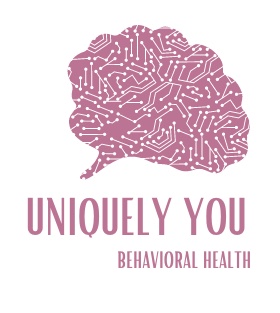Neurodiverent Affirming Care
Neurodivergence is a topic that is all over social media right now, and everyone wants to know what to do about it.
First, it’s essential to define what it means to be neurodivergent and what it means to be neurotypical. Neurodivergent (ND) simply has a brain that differs from what society has deemed normal. What makes this so interesting is that it is societal based, which means that each culture has a different definition of neurodivergence. It is important to note that neurodivergent is not synonymous with autistic. Neurodivergence is the state of being neurodivergent. One can innately be neurodivergent (think autism) or can acquire a neurodivergent brain through trauma, substance use, or even long-term prescription drug use. Neurotypical (NT) is used to describe a person whose brain does not differ from the norm.
Definitions aside, what does this mean? How does a therapist practice neurodivergent affirming therapy, and how does a neurodivergent find an ND-affirming care practice?
Being neurodivergent affirming is more significant than just validating their experience. It means being culturally competent in the experience of a neurodivergent person and, most importantly, listening to the voice of self-advocates when they describe the type of treatment they do and do not want. A lot of what I do as a neurodivergent affirming therapist is to give people the words to describe their lived experiences and help them to understand what is happening in their bodies and why they are responding to sounds, touches, or experiences a certain way. It is helping them to understand their dopamine system and how to utilize it to get the daily tasks done in a way that is productive and feels good to them. This process includes helping them to ‘unmask,’ which can be a very stressful process, especially when they are not given the words and support around how to do it in a way that feels good for them, at a pace that feels good, and with whom they feel comfortable. ND Affirming care focuses on promoting the well-being and happiness of NDs and valuing the different ways of being and socializing. We do not try to make someone “less disabled” or “more neurotypical.”
A neurodivergent person cannot fully understand themselves, the world, and why they are experiencing things until they understand their sensory system. This why each of our clients will complete a sensory profile with their therapist to understand the areas where they may be seeking, avoidant or neutral. We use this information to help them know why something their partner does ‘sets them off,’ why they appear to have ‘unreasonable’ responses to certain stimuli, or why they feel exhausted by the end of the day.
An ND-affirming therapist will also understand how a person’s brain functions and communicates with others. Knowing why their thought patterns seem to ‘jump’ or why they interrupt or ask so many questions. In practice, this looks like being able to follow the person’s train of thought and not asking them why they started talking about their friend from high school when telling a story about their trip to the grocery store but understanding they feel you need all the background information to understand their story fully. It is helping them to communicate to their partner that asking “why” they are being asked to do something is not out of defiance but because NDs need things to make complete and total sense to do the activity.
You may be asking yourself if ND-affirming therapy is right for you. Well, does this resonate?
– Is impulse control, forgetfulness, and sensory issues impacting your ability to fully engage in school, the workplace, or your relationships?
– Do these issues affect your sense of self and self-acceptance?
– Perhaps you have a child, sibling, or partner who is neurodivergent. Often it can be a struggle to understand their unique needs resulting in increased stress and often an inability to connect with loved ones.
– Ever ask yourself, “How do I do this?”
So how do you find an ND-affirming therapist in your area? When reaching out to the therapist, ask them the following questions.
1. Would you consider yourself a neurodivergent affirming therapist?
2. What does being neurodivergent affirming mean to you? What does that look like in your practice?
3. What are the modalities you use? (CBT and DBT are known not to be as effective for NDs and can be harmful)
4. Do you accommodate different seating arrangements in your office or allow for movement during sessions?
